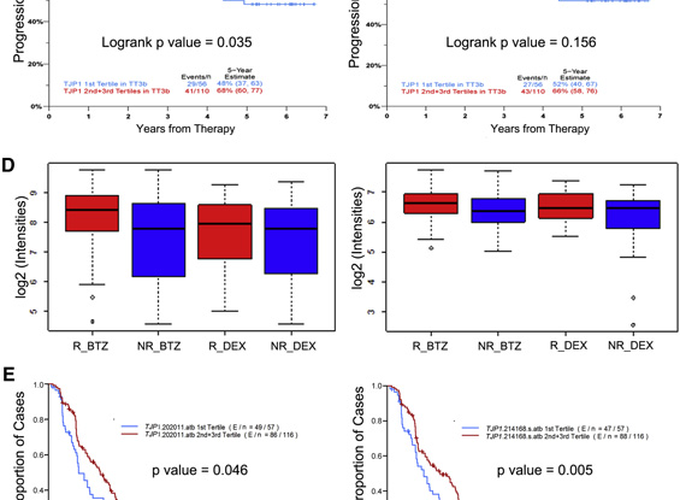Tight Junction Protein 1 Modulates Proteasome Capacity and Proteasome Inhibitor Sensitivity in Multiple Myeloma via EGFR/JAK1/STAT3 Signaling
Abstract
Proteasome inhibitors have revolutionized outcomes in multiple myeloma, but they are used empirically, and primary and secondary resistance are emerging problems. We have identified TJP1 as a determinant of plasma cell proteasome inhibitor susceptibility. TJP1 suppressed expression of the catalytically active immunoproteasome subunits LMP7 and LMP2, decreased proteasome activity, and enhanced proteasome inhibitor sensitivity in vitro and in vivo. This occurred through TJP1-mediated suppression of EGFR/JAK1/STAT3 signaling, which modulated LMP7 and LMP2 levels. In the clinic, high TJP1 expression in patient myeloma cells was associated with a significantly higher likelihood of responding to bortezomib and a longer response duration, supporting the use of TJP1 as a biomarker to identify patients most likely to benefit from proteasome inhibitors.
